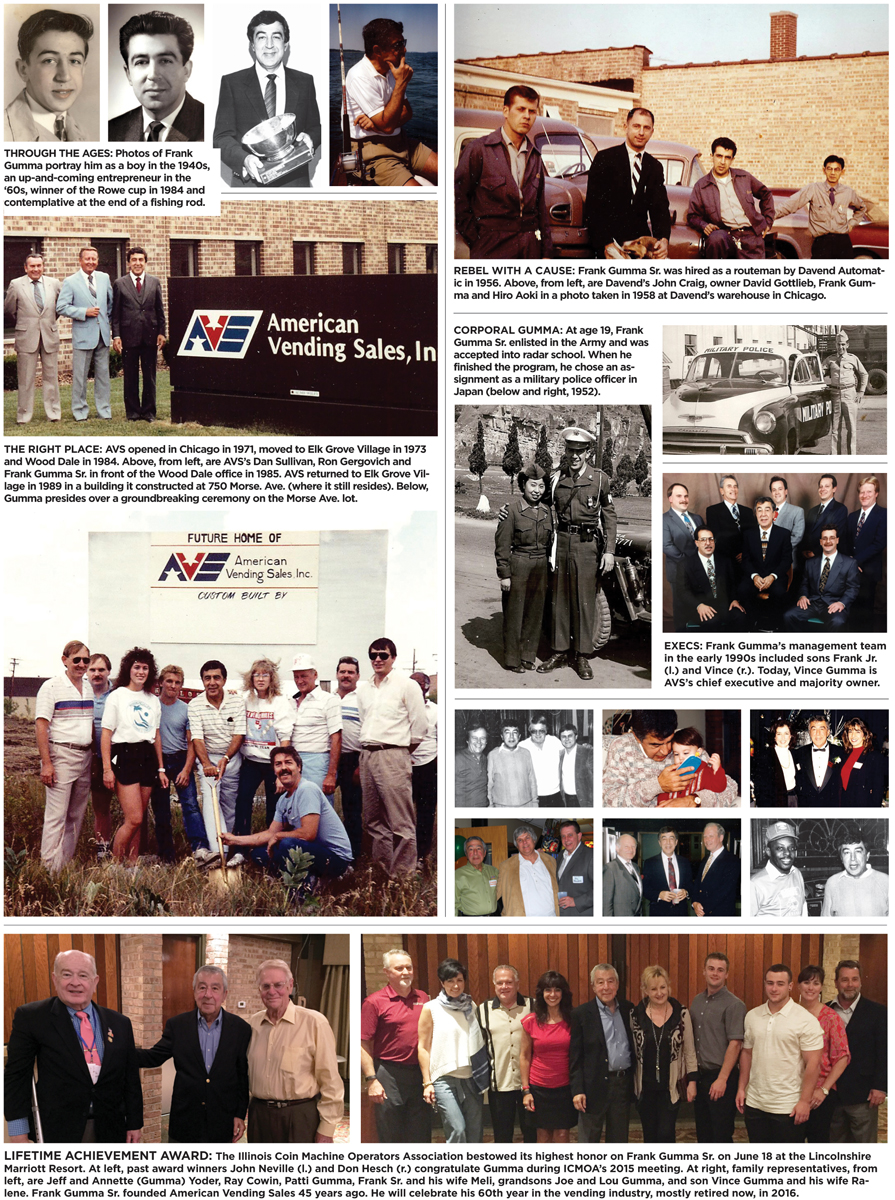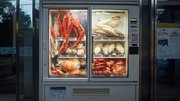News
Distribution Pioneer Frank Gumma Sr Celebrates 60 Years In Vending And Coin-Op
November 26, 2015 | Nick Montano
TAGS: Frank Gumma Sr., American Vending Sales, vending, coin-op, jukebox, Illinois Coin Machine Operators Association, Vince Gumma, TouchTunes, Charles Goldstuck, Davend Automatic, David Gottlieb, World Wide Distributors, Fred Skor, Siculiana Sicily, Italian American business leader, Seeburg, Rowe, Rudd-Melikian |
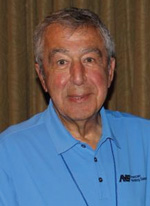 |
Frank Gumma Sr. |
What began as a search for a job with better pay six decades ago, launched one of the most dynamic careers in vending and coin-operated amusements. Frank Gumma Sr.'s service to those industries is as remarkable as it is enduring. He has retained a charismatic humility acquired in his rise from modest beginnings, which has been a driving force, and asset, throughout his professional life. His determination to care for his customers and employees has been uncompromising. His knowledge of vending machines not only catalyzed his success as a salesman, but also earned him a reputation as the go-to guy for help.
For these reasons and more, the equipment distribution pioneer received the Illinois Coin Machine Operators Association's highest honor. Gumma, who founded American Vending Sales 45 years ago in Chicago, will celebrate his 60th year in the vending and coin machine industries in 2016 (the last few years as AVS chief executive emeritus).
For the past three years, ICMOA has honored one its members who exemplifies devotion to the coin machine industry in the state of Illinois and beyond. In 2013, the association recognized John Neville, one of the principal architects of Illinois's legal video poker program. In 2014, Don Hesch's achievements as an amusement and vending operator were lauded. This year, ICMOA's choice for its Lifetime Achievement Award completes a triumvirate of great men in coin-op.
Born in Chicago, the youngest son of southern Italian immigrants, Gumma's early life was not without hardship. His father attained U.S. citizenship after fighting for the United States in World War I. He died at home from an illness caused by mustard gas exposure during fighting in France. The young Gumma was only six when he was left fatherless.
His mother, who came from Siculiana, a coastal town in the province of Agrigento, Sicily, worked to support her three children. Frank attended public schools in Chicago. As a teenager, he sometimes earned $2 a day (good money in the 1940s) as a golf caddy, if he could carry two bags, at the posh Medinah Country Club, about 30 miles northwest of Chicago; he'd hitchhike for transportation. He also worked at a service station, pumping gas.
When he turned 19, Gumma enlisted in the U.S. Army, which was fighting the Korean War. This experience revealed his considerable mechanical aptitude, which later would open up opportunities in the vending industry. During basic training at Fort Bliss, TX, home of the 1st Armored Division, he passed a written test that qualified him for entry into the Army's radar school. More than 200 fellow trainees took the test, and Gumma was one of only five who passed it. Electronics training was central to learning this specialty. When he finished radar school, he chose an assignment as a military police officer and was posted in Japan.
His term of service ended two weeks after his 21st birthday, and Gumma returned to his childhood home in Chicago. In his prime and ready to enter the workforce, he took a job as a bricklayer for a local contractor. A coworker told him about better pay in the vending machine field, which was hiring; supervisors at vending operations like Interstate United Corp. could earn $135 a week. Gumma applied for employment at Interstate United, but was offered a job as a routeman by another company, Davend Automatic, named after its owner, David Gottlieb (no relation to the pinball dynasty).
So, in 1956, Frank Gumma entered the vending business, filling machines for $80 a week; he earned another $140 a month in sales commissions. Interstate United ultimately acquired Davend, which came with Gumma, whose service skills were beginning to become apparent to his supervisors. After he finished his route, he would remain at the shop, on his own time, to learn how to repair vending machines, and he was good at it. When Interstate's head mechanic left the company, Gumma was ready to take over. He became a technical supervisor, overseeing about 20 vending routes.
Gumma was able to repair a wide variety of equipment types. At Davend and Interstate United, he worked on hot beverage venders made by Rudd-Melikian Inc. (RMI), which later became Industrial Vendors Inc. They brewed liquid-concentrate coffee and used fresh cream (stored in canisters kept cool by small refrigeration units). Coffee sold for 8¢ then, and machines were equipped with penny refund mechanisms. He also worked on batch-brew systems. Cold drink machines were all postmix, and the dominant vended food source was in an 8-fl.oz. can, stored and sold heated.
In 1960, Gumma took a job as field technician with Rowe, which then was owned by Automatic Canteen Corp. Joel Kleiman was president of Canteen's Rowe division, and he approved Gumma's hiring. He was assigned to aid vending operators in Illinois, Iowa, Minnesota and Wisconsin.
During his three years under the Rowe aegis, Gumma noticed that there were much greater opportunities in equipment sales. This realization led him, in 1964, to World Wide Distributors Inc., a Chicago dealership that sold Seeburg vending machines and jukeboxes. Gumma loved working with operators, and he believed he could make a difference selling vending machines to them, and advising them on how to invest in equipment assets. He understood service, and vendors respected him for that. Like many up-and-coming salesmen of the day, he enrolled in a Dale Carnegie sales course. But he was the only one in his field who carried a tool bag on sales calls.
As the 1960s were winding down, Gumma began to recognize a growing need for a robust vending aftermarket, and in 1971 -- with no capital, four children at home and a mortgage -- he opened American Vending Sales. A small bank loan, and another loan from a friend, helped get the business started. It began in a rented storefront at 3049 North Cicero Ave., a major north-south thoroughfare in Chicago and its suburbs.
By day, Gumma donned a suit and called on operators. At night, he switched into his work clothes to refurbish machines. His workdays were long, except for Sundays, when he usually put in only a few hours. A colleague from World Wide came to visit the new AVS operation and he immediately wanted to join it. So Ron Gergovich, who was World Wide's downstate sales star, became AVS's first salesman in 1972. (Gumma preferred the Chicago market.)
Gumma's solution for the underserved used equipment market was almost an immediate success. Used vending machines were coming in and heading back out. He never used the money he borrowed from the bank, keeping it, instead, in two bank accounts. By 1973, he paid back his bank and personal loans, and he purchased the first AVS building in Elk Grove Village. AVS was the first Chicago distributor to relocate to the suburbs, a move others regarded as foolish; but Atlas, Empire Bally and World Wide, among others, would eventually exit Chicago, too.
Within a decade, AVS had become the region's leading vending machine distributor. By 1980, it was involved in new equipment sales. Rowe awarded AVS its vending line, and Automatic Products, which had just acquired the RMI coffee machine line, also came to the distributorship. Gumma, who had cut his technician's teeth on RMI machines, possessed vast knowledge of both lines. Vending sales enjoyed another boon during the 1980s, led by the new bean-grinding coffee machines.
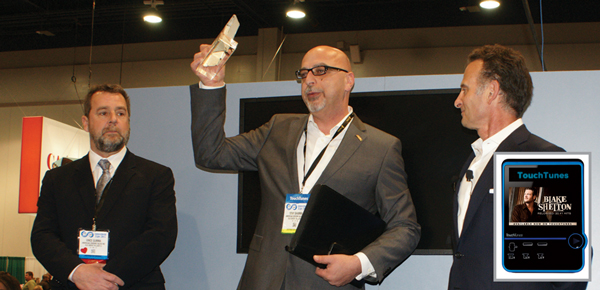 |
JUKEBOX HONOR:AVS vice-president of sales Tony Shamma holds up TouchTunes Distributor of the Year Award, presented to him and AVS president Vince Gumma (l.) by TouchTunes chief executive Charles Goldstuck during March's Amusement Expo in Las Vegas. AVS is the largest TouchTunes distributor in the Chicago market. Virtuo [inset] is at the top of the jukebox line. |
During its early years, AVS dabbled in music and games. It officially became a Rowe jukebox distributor in the mid-1980s, just before CD boxes were introduced. John Neville, who sold Seeburg jukeboxes at World Wide when Gumma was there selling vending, helped AVS get its newly acquired jukebox sales organization up and running. Neville, who had just acquired Blackhawk Music Co., worked for AVS and ran his own route simultaneously until 1992.
Amusements became a major part of the AVS ensemble in 1986, when it acquired Bally Midwest, a competing dealership. Nearly 20 years later, AVS would acquire World Wide Distributors, whose principal, Fred Skor, became Gumma's friend. It was Skor's hope -- should World Wide ever be sold -- that Gumma would be the buyer.
About 10 years ago, the Midwest distributorship explored bringing its sales and service brand to the Northeast. It opened an office in Clifton, NJ, but decided to exit the market in 2010, focusing all its resources back home, where a new operator-run video gaming program was about to start in Illinois.
Frank Gumma Sr., who was the recipient of the American Amusement Machine Association's Lifetime Achievement Award in 2011, has four children, 11 grandchildren and three great-grandchildren. He is retired, and spends his time between homes in Illinois and Florida. He's back on the road, however, as a volunteer in the American Cancer Society's Road to Recovery program, which employs volunteers to drive patients to their cancer treatments.
Today, American Vending Sales is led by Frank's son, Vince Gumma, who owns a majority stake. AVS's chief financial officer, Jim McAllister, and Frank's daughters Patti Gumma and Annette Yoder are also owners. The company employs about 40 people, and video gaming terminals, accessories and services are now a big part of the distributor's business.
The elder Gumma belongs to an accomplished group of business leaders who were able to combine technical knowhow and relationship-building skills to advance the vending industry. For his generation, a good working knowledge of electrical power and refrigeration systems could start a career in vending. Today, Frank praises AVS's continuation as a technical leader, from Internet jukeboxes to networked gaming terminals. The overall market is evolving, too. For most full-service distributors, vending machines now represent less than 15% of sales. In Chicago, AVS no longer sells Rowe jukeboxes, but is the leading TouchTunes sales center. And the company's biggest competitor is without Chicago roots.
When asked what inspired him to succeed in the vending and coin machine businesses, Frank Gumma Sr. remembers his customers. "When I became a salesman, operators went out of their way to help me -- sometimes buying machines they probably didn't need. I never forgot this, and it instilled in me a humbleness that I carried with me throughout my livelihood."
For ICMOA's 2015 Lifetime Achievement Award recipient, a career in vending and coin-op distribution was less about making the sale and more about doing what's right for the customer.
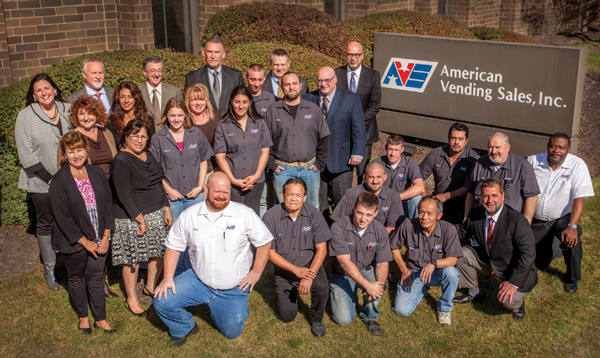 |
TEAM 2015:American Vending Sales employees gather for a photo on a warm and sunny fall day at the company's Elk Grove Village headquarters. |
 ChatGPT
ChatGPT Grok
Grok Perplexity
Perplexity Claude
Claude